Keynote and plenary talks from renowned speakers

The program will include invited plenary lectures, contributed talks and poster sessions highlighting the latest research and technologies in the field.
Unfortunately we don't fully support your browser. If you have the option to, please upgrade to a newer version or use Mozilla Firefox, Microsoft Edge, Google Chrome, or Safari 14 or newer. If you are unable to, and need support, please send us your feedback.
We'd appreciate your feedback.Tell us what you think!
10-13 May 2026 | Hilton Doubletree, Kuala Lumpur, Malaysia
We are still accepting poster submissions! Submit here
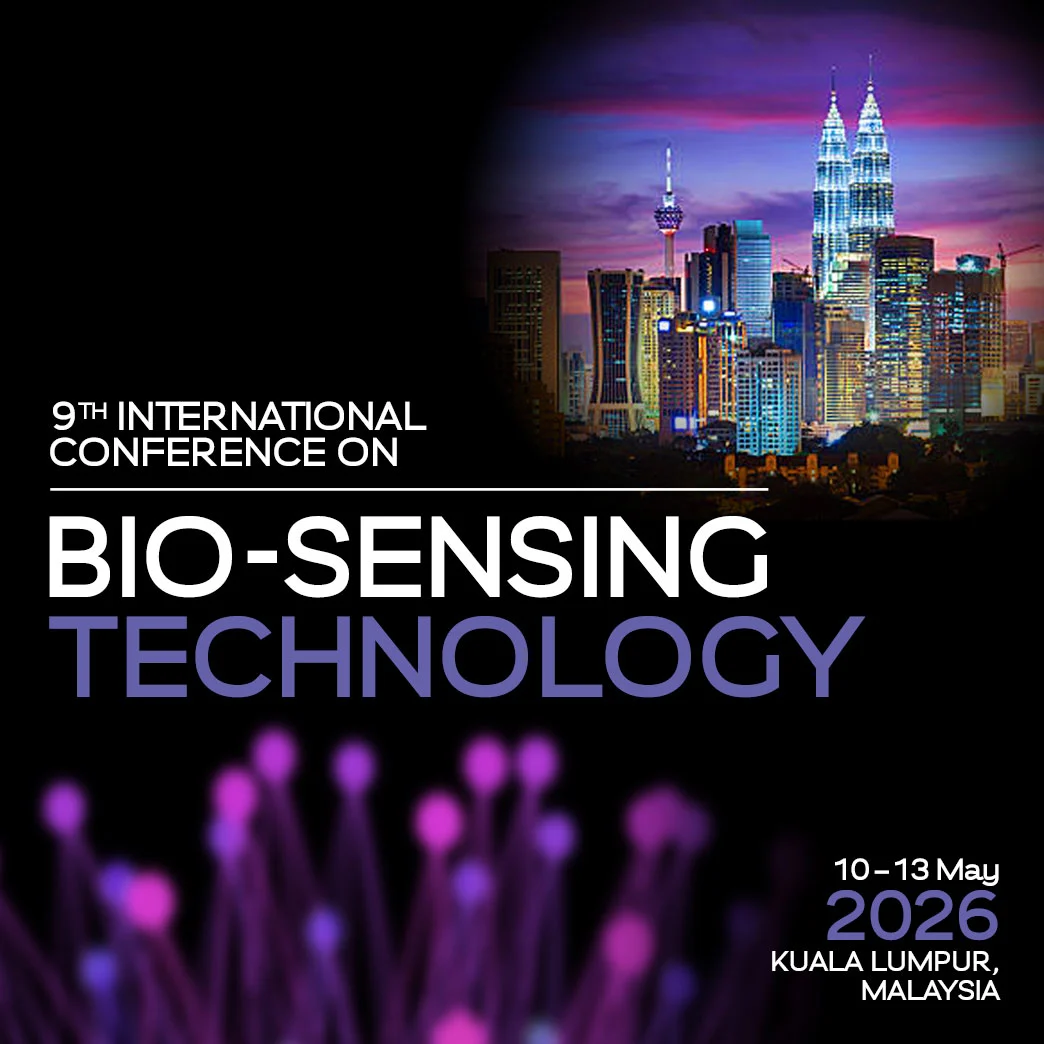
Following the success of the first 8 conferences, the 9th International Conference on Bio-Sensing Technology will continue to bring together leaders from industry and academia to exchange and share their experiences, present research results, explore collaborations and to spark new ideas, with the aim of developing new projects and exploiting new technology for bio-sensing applications.
We are delighted to announce the upcoming 9th International Conference on Bio-sensing Technology, which will take place in Kuala Lumpur on 10-13 May 2026. As a fast-growing hub for biotechnology and medical research in Southeast Asia, Kuala Lumpur provides the perfect environment for conference attendees to connect, collaborate, and engage with presentations of cutting-edge solutions to real-world challenges in the bio-sensing technology field. Kuala Lumpur has modern infrastructure, a strategic location, and strong support for science and technology.
Bio-sensing technologies have a vital role to play in in the growth and adoption of new technologies for health, environment and agricultural applications. From detecting infectious diseases and monitoring health conditions to ensuring food safety and environmental quality. As demand grows for faster, more sensitive, and reliable detection methods for monitoring and point of use measurements the need for interdisciplinary research is ever more critical.
Researchers worldwide are working to advance bio-sensing technologies through the development of novel surfaces, the use of advanced materials, the integration of cutting-edge transducers and instrumentation, and innovative approaches to biomarker discovery and analysis. At the same time, secure transmission, interpretation, and real-time analysis of data remain essential for the successful implementation and scalability of these technologies. The continued need for connectivity and interoperability continues to fuel innovation in the bio-sensing technologies.
This conference will provide attendees a dynamic platform to explore the latest developments in the field. Attendees can expect a diverse range of sessions and presentations that cover the discovery and application of bio-sensing technologies. For example, advancements in novel sensor surfaces that enhance specificity and sensitivity along with new transduction and measurement techniques.
Sessions will also explore how these technologies can be integrated with other technologies such as microfluidics for future applications such as continuous monitoring and point of use technologies.
Poster submissions are invited on the following topics and should be submitted using the online abstract submission system.
The major areas of research, innovation and commercialisation in bio-sensing technology are reflected in the 5 themes of the conference. The scope and area of the invited talks in each theme is given below:
Theme 1: Novel Sensor Surfaces
Sensor surface fabrication
Capture of biological molecules in biosensor measurements
Integration of nanomaterials with sensor surfaces
Integration of biological molecules with novel materials at micro and nano scales
Theme 2: Novel Transduction Technology
New and emerging detection technologies for biosensors
Optical, electrochemical, piezoelectric, and magnetic measurements
Advances in sensor fabrication and integration of micro and nano technologies
Signal generation and processing
Theme 3: Continuous Monitoring
Systems that generate continuous/near continuous bio-sensing signal
Integration of sensor into suitable platforms
Wearable and deployable systems
Data capture and presentation
Theme 4: Point-of-use Technologies
Rapid, low-cost sensing technologies
Detection of infectious disease
Signal generation and processing
Technology of low-income countries
Theme 5: Integration in real world settings
Reports of field or clinical trials
Technologies in the process of being commercialized
Applications in sectors such as agri-tech, health, security, and food quality/safety
Bridging the gap between research and practical implementation
Economic and societal impact of successful commercialization
These themes collectively cover a wide range of topics and developments in bio-sensing technology, offering attendees a comprehensive overview of the field and fostering collaboration and knowledge exchange among researchers, industry professionals, and policymakers.
Abstract submission deadline: 5 December 2025
Author notification deadline: 16 January 2026
Author registration deadline: 13 February 2026
Early bird registration deadline: 13 February 2026

The program will include invited plenary lectures, contributed talks and poster sessions highlighting the latest research and technologies in the field.

Choose from a variety of sponsorship and commercial options to raise your profile and position your company as a thought leader in the community.
Biosensors & Bioelectronics is the principal international journal devoted to research, design, development and application of biosensors and bioelectronics. It is an interdisciplinary journal serving professionals with an interest in the exploitation of biological materials and designs in novel diagnostic and electronic devices including sensors, DNA chips, electronic noses, lab-on-a-chip and μ-TAS.
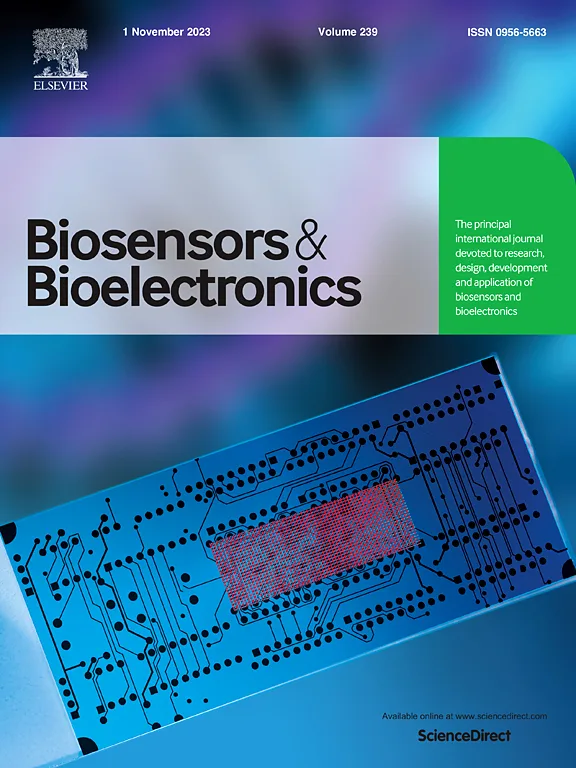
Biosensors and Bioelectronics: X is the open access mirror journal of Biosensors and Bioelectronics.
Biosensors and Bioelectronics: X offers authors with high-quality research who want to publish in a gold open access journal the opportunity to make their work immediately, permanently, and freely accessible.
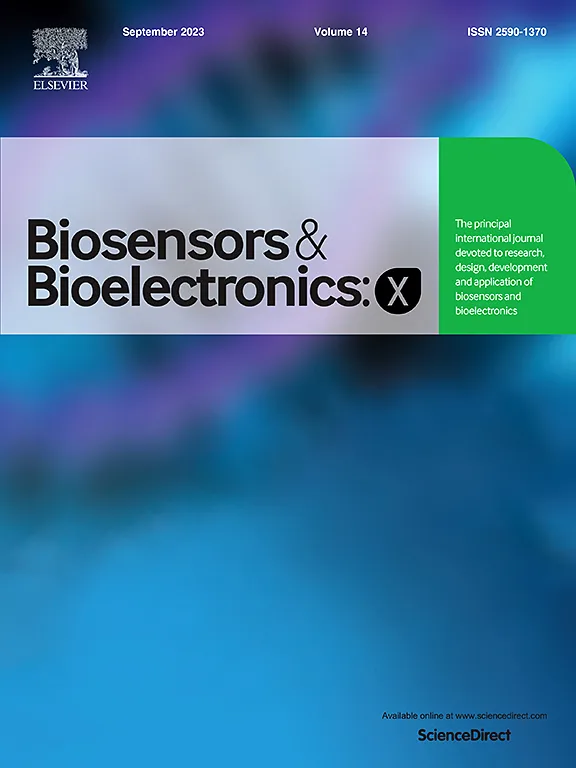
Sensing and Bio-Sensing Research is an open access journal devoted to research, design development and application of all bio-sensing and sensing technologies. The editors will accept reviews and papers of obvious relevance, which describe important new concepts, underpin understanding of the above areas of interest or provide important insights into the practical application, manufacture and commercialisation of bio-sensing and sensing technologies.
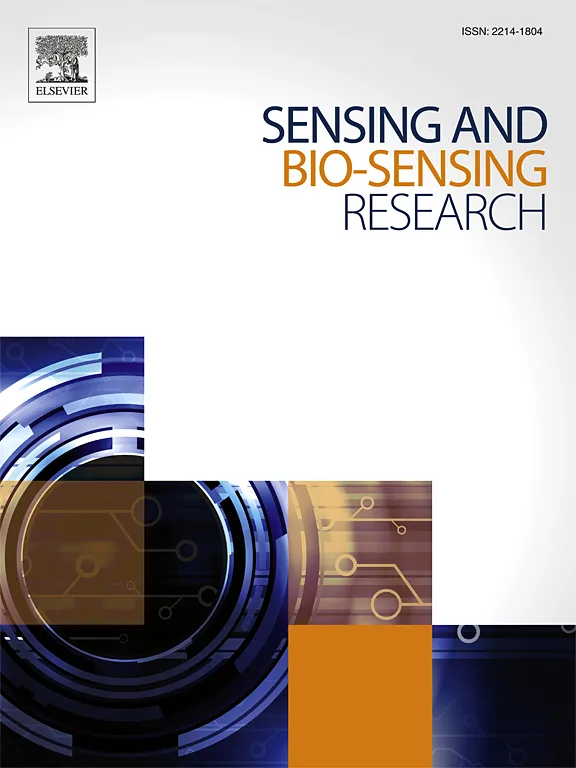
Sensors and Actuators Reports is a peer-reviewed open access journal launched out from the Sensors and Actuators journal family. Sensors and Actuators Reports is dedicated to publishing new and original works in the field of all type of sensors and actuators, including bio-, chemical-, physical-, and nano- sensors and actuators, which demonstrates significant progress beyond the current state of the art. The journal regularly publishes original research papers, reviews, and short communications.
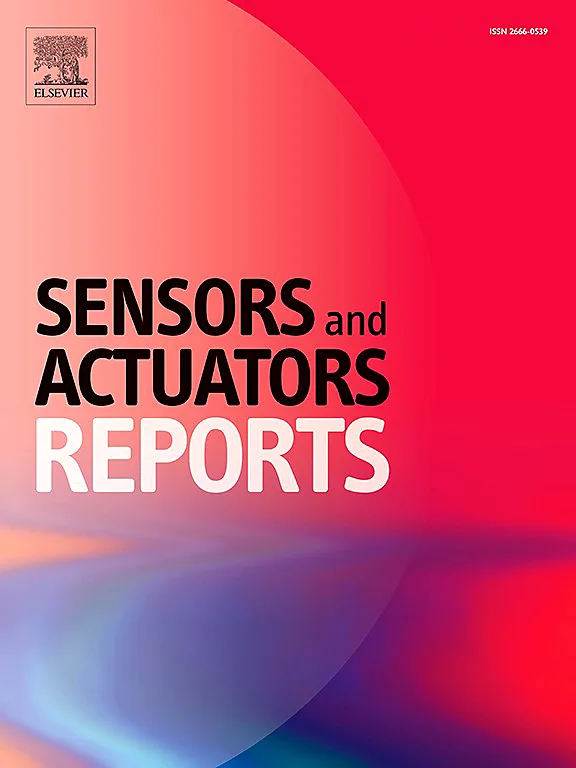
Sensing and Bio-Sensing Research and Sensors and Actuators Reports will be publishing a joint Special Issue for 9th International Conference on Bio-Sensing Technology. Authors whose abstracts have been accepted and the corresponding presentation (oral or poster) has been done at BITE 2026 will be invited to submit a Review Article or Full-length manuscript, for consideration of publication in a virtual special issue devoted to the conference in Sensing and Biosensing Research or Sensors and Actuators Reports.
This conference is organized by Elsevier and the following partners:



The 1st International Conference in Bio-Sensing Technology took place in Bristol, UK in 2009. The success of this paved the way for the 2nd International Conference in Bio-Sensing Technology (Amsterdam, The Netherlands 2011). The 3rd one took place in Sitges, Spain in 2013, the 4th in Lisbon, Portugal in 2015 and the 5th in Riva del Garda, Italy, the 6th in 2019 in Kuala Lumpur, Malaysia. The 7th in 2022 in Sitges, Spain.
These conferences are held in the “in between years” of Elsevier’s World Congress on Biosensors that is also held every 2 years.
In 2011 we had more than 350 attendees and this has now grown to almost 400!
After every conference, Elsevier sends out a questionnaire to the attendees. Below are some comments made by delegates of the previous conferences.
“High quality of the oral presentations” “Fantastic opportunities/research across the board.” “Very interesting themes were presented/discussed. Conference makes the bridge between academy and industry.” “Had a really well put together program. I also appreciated the single-session nature of the conference.” “Good range of high quality presenters” “Large and relevant audience” “Quality of research” “Cutting-edge techniques presented” “A good mixture of topics” “Good atmosphere/spirit” “High scientific level on biosensing and nanotechnology-related topics” “It is a great opportunity to keep ourselves up to date with market trends and new developments.” “It's a great opportunity to extend networking” “Quality of the presentations” “Relevance to our research area.” “Top-quality contents but not overcrowded, so it's easier to meet everybody.” “Get all technical experts of this field together.” “Very relevant for my subject, very well organize, good length of the conference.” “Most relevant congress in this research field” “Great organization (both "administration" and lectures)” “It was a very good meeting. It was well attended but not too big that it was difficult to meet people. Most of the oral presentations were of high quality, interesting and relevant. Many young scientists were there presenting their work.” “It was a very useful conference: - well organized - not too large - many of my colleagues were there” “Good quality of lectures” “The relevance of the presentations and posters in our field. Good value for money. Good blend of research groups (more fundamental work) with applied or commercial science (development)” “There are a lot information we can get during the conference including building a network with other researches” “Very interesting conference which contain several scientific topics and new research” “Well organised with a clear agenda and good representatives” “Very interesting for my field” “Good knowledge exchange and interesting poster session” “Very wide audience very new results” “Nice organization and valuable subjects” “There are a lot of interesting sessions and posters and you meet many people” “Well composed program and space for discussions” “People could meet and speak together many times during lunch, poster session, etc..."